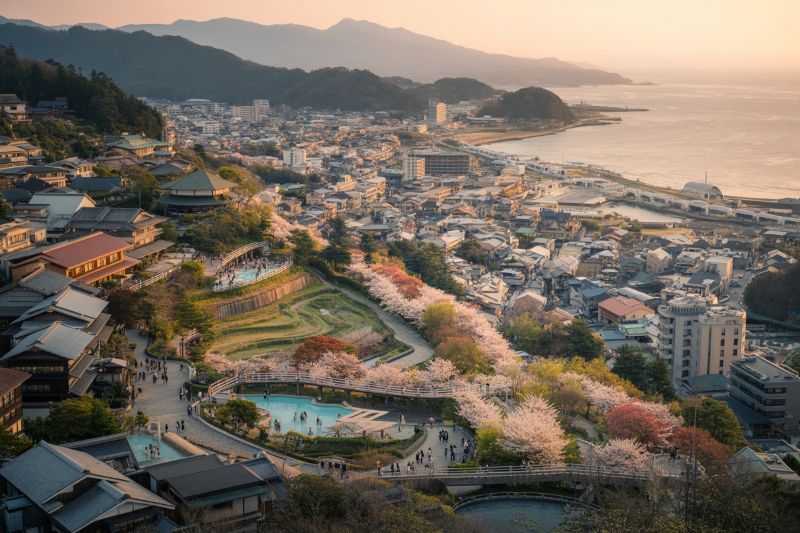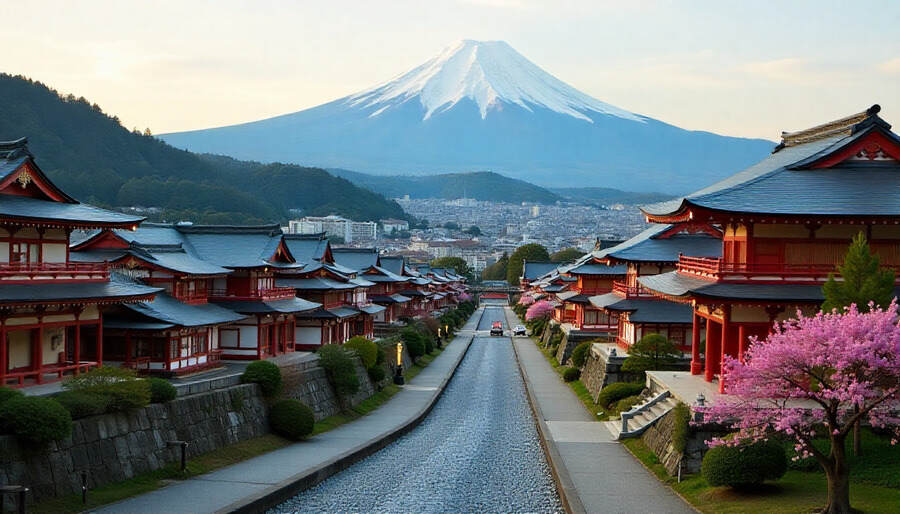
Published on
November 6, 2025

As Japan sets unprecedented records in the number of visitors, the hotel industry continues to profit from the hospitality of an increasing number of international tourists. According to industry players’ insights shared at the Mingtiandi Tokyo Forum, Japan registered more than 21.5 million international tourists in the first 6 months of 2025. This is an astonishing growth compared to only 10 million visitors recorded 15 years ago. Such growth in the number of tourists creates unique opportunities within the hospitality sector, and positively encourages hotel operators and investors in hospitality to expect growth in the sector in the years to come.
The increase in foreign tourists is the consequence of deliberate and planned strategic activities that include the relaxation of visa restrictions, and the increase in the number of Japan’s diverse and rich cultural and tourism products. This makes Japan tourism more appealing which strengthens Japan’s position as one if the most dominant players in the world tourism markets.
Eased Visa Rules and Increased Accessibility Drive Tourism Growth
The sharp rise in foreign tourists can largely be attributed to Japan’s strategic decision to relax visa requirements in the mid-2010s. Notably, the introduction of visa-free entry for travelers from India, combined with easier visa policies for countries in Southeast Asia, opened the floodgates for millions of new visitors from countries with large populations and proximity to Japan.
As SC Capital Partners’ founder and chairman Suchad Chiaranussati highlighted during the forum, the policy changes have made it easier for travelers from countries like India, Southeast Asia, and other parts of the region to visit Japan, resulting in a substantial boost to tourism. Previously, many potential travelers from these regions were either deterred by complex visa processes or unable to make the trip due to the high cost of obtaining a visa. The result has been a sharp increase in tourism from these regions, which was once an untapped source of visitors for Japan’s tourism industry.
Hotel Demand Soars as Tourist Arrivals Reach Historic Levels
With the growing number of international tourists, Japan’s hospitality sector has seen a surge in demand for hotel accommodations, particularly in major cities like Tokyo, Kyoto, and Osaka, as well as in emerging destinations like Fukuoka and Hokkaido. This trend is supported by a consistent increase in hotel bookings, including premium and high-end properties. The result is a strong outlook for the hospitality industry, with hotel brands expanding their presence in key locations across the country.
Hotel giant IHG Hotels & Resorts, which manages over 55 properties in Japan, is one of the companies benefitting from this boom. Abhijay Sandilya, who oversees growth and operations for IHG in Japan and the surrounding regions, spoke about the strong fundamentals supporting Japan’s tourism market. He emphasized the positive long-term outlook, citing strong sector-specific tailwinds that are expected to continue driving growth in the hospitality and tourism sectors.
As Japan continues to attract a diverse range of international tourists—from cultural enthusiasts to adventure travelers and business visitors—the demand for accommodations across various categories, from luxury resorts to budget-friendly hotels, will continue to rise.
Regional Cities: Untapped Potential for Hotel Development
While major urban centers in Japan have experienced an increase in tourism demand, there remains significant untapped potential in regional cities that offer a wealth of cultural, natural, and historic experiences. Gary Kwok, CEO of Axe Management Partners, spoke about the growing appeal of Japan’s regional destinations, highlighting how cities outside the well-known tourist hubs are becoming more popular among travelers. Many of these locations offer authentic cultural experiences, natural beauty, and high-quality services that are yet to be fully developed for the international market.
The potential for hotel development in these lesser-known areas presents an exciting opportunity for investors and developers looking to expand Japan’s tourism infrastructure. Kwok noted that regional cities are becoming increasingly attractive, especially as Japan’s tourism sector diversifies and attracts more visitors who are looking for off-the-beaten-path experiences. The government’s efforts to improve regional tourism infrastructure and increase accessibility are expected to further encourage visitors to explore Japan’s lesser-known regions, driving demand for accommodations and other services.
Strategic Investments and Hotel Acquisitions in Japan
In addition to the growing interest from international tourists, hotel investments and acquisitions in Japan are on the rise. AB Capital Investment, a Hong Kong-based fund manager specializing in Japan hotels, has recently acquired two more properties in the country, bringing its total portfolio to 11 hotels. This expansion includes a hot spring resort in the Nagano region, which has become increasingly popular with both domestic and international travelers.
AB Capital’s approach to investing in Japan’s hospitality sector is focused on repositioning assets, often in partnership with international hotel brands. This strategy enables the company to enhance the properties’ appeal to global travelers while improving the overall quality of accommodations available in Japan. Such acquisitions highlight the continued confidence in the Japanese hospitality market and the growing demand for both traditional and modern hospitality experiences.
MICE Tourism: Boosting Japan’s Status as a Global Business Destination
Another key area driving tourism growth in Japan is the MICE (Meetings, Incentives, Conferences, and Exhibitions) sector. As Japan continues to host international events and business conferences, the demand for business-oriented accommodations and facilities has risen. The country’s excellent transportation infrastructure, combined with its modern and diverse hotel offerings, makes it an ideal location for global businesses to host events, conferences, and incentive trips.
Increased interest in business tourism is not only driving hotel demand but also supporting the local economy through spending on services, dining, and entertainment. As more businesses and professionals travel to Japan for MICE events, the country’s tourism sector benefits from both business and leisure spending.
Sustainability and Eco-Tourism: The Future of Japan’s Tourism Industry
As Japan’s tourism industry continues to grow, sustainability and eco-tourism are becoming more important considerations for both travelers and operators. The Japanese government and the private sector are working together to promote eco-friendly travel options, such as sustainable hotels, green transportation, and nature-based tourism experiences. These initiatives align with the global shift towards more environmentally conscious travel and reflect Japan’s commitment to preserving its natural and cultural heritage for future generations.
The growing focus on sustainability is expected to enhance Japan’s appeal to eco-conscious travelers, who increasingly seek destinations that prioritize environmental responsibility and sustainable practices. By integrating these values into its tourism offerings, Japan is poised to attract a new generation of travelers who care about the environmental impact of their journeys.
The Future of Japan’s Tourism Industry
Japan is thriving in tourism with more and more international visitors coming to see the country’s cities, cultural sites, and natural beauty. The recent additions to the country’s tourism features, which include rolling out new attractions in various regions of the country and the tourism resorts which are high end and eco-friendly, has certainly played a role in making the country one of the most vibrant destinations in Asia. Japan’s consistent growth in the tourism industry is evident by its ongoing growth of the industry’s infrastructure such as hotels, transportation, and MICE facilities. Japan’s will also maintain its position on the global tourism stage in coming years.
link






